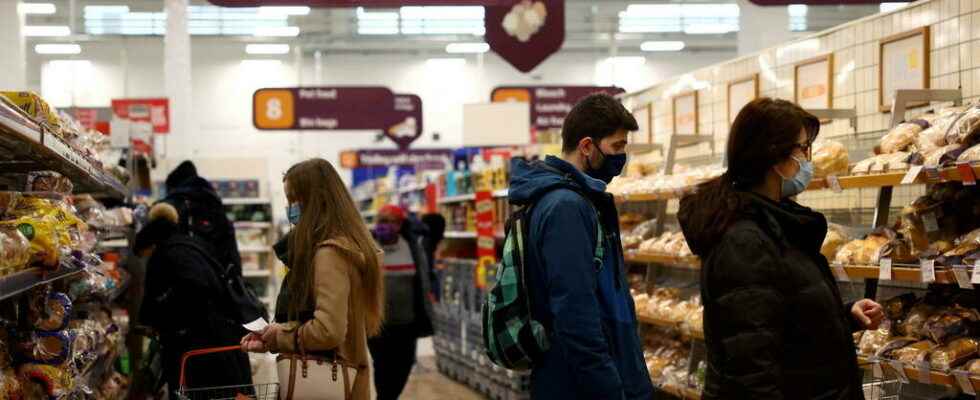The pound fell 1% on Thursday against the dollar after the announcement by the Bank of England (BoE) of a fifth consecutive increase in its key rate to 1.25%. Inflation is expected to climb to 11%.
With our correspondent in London, Emily Wine
Staple food prices could increase by 15% in the coming months, according to the Institut de la grande distribution (IGD), a benchmark for this sector. Grain products such as bread and grain-fed poultry are expected to be the first products affected by this new increase, due to the war in Ukraine.
Conflict in Ukraine affects harvests
The conflict could also affect the harvest of fruits and vegetables. Last year, two-thirds of seasonal workers came from Ukraine. Again, the IGD expects prices to rise. Finally, energy tariffs should continue to make the production of plastic and therefore packaging more expensive.
UK inflation is at levels not seen since the 1970s. A quarter of Britons already regularly skipping meals because of the cost of living, according to the polling institute Ipsos.
Prolonged inflation
Between these tensions on a global scale (the United Kingdom imports 40% of its food), the uncertainties linked to Brexit, the Institut de la grande distribution expects prolonged inflation, more pessimistic in its forecasts than the Bank of England, which expects a slowdown next year.
► Read also: To cope with inflation, the United Kingdom taxes energy giants
